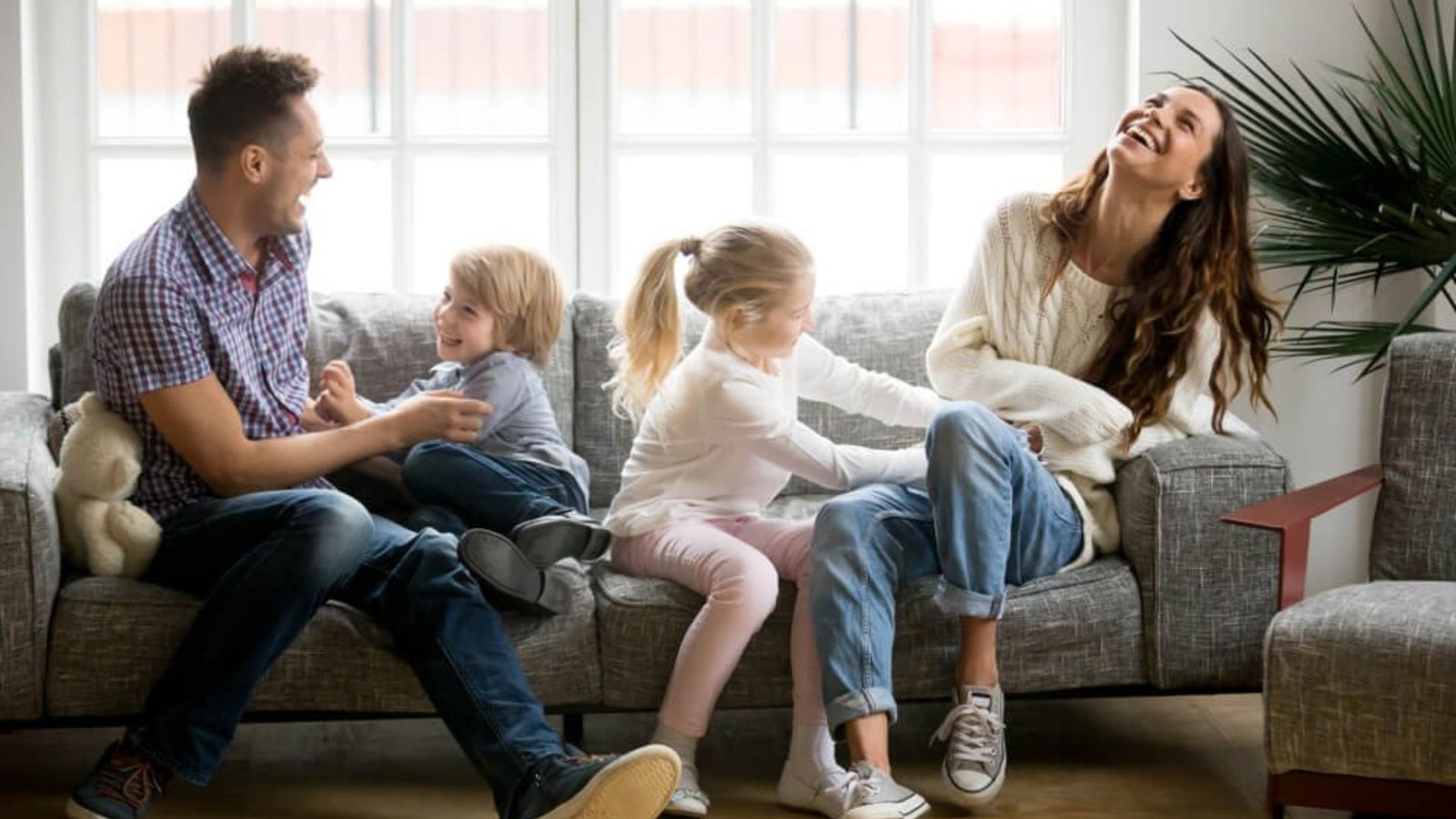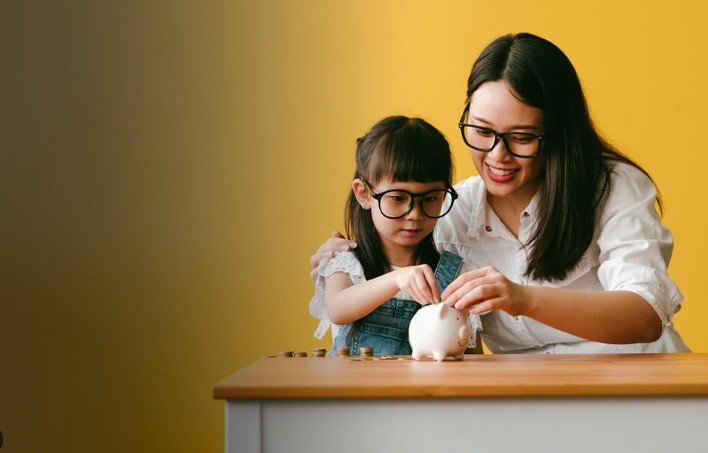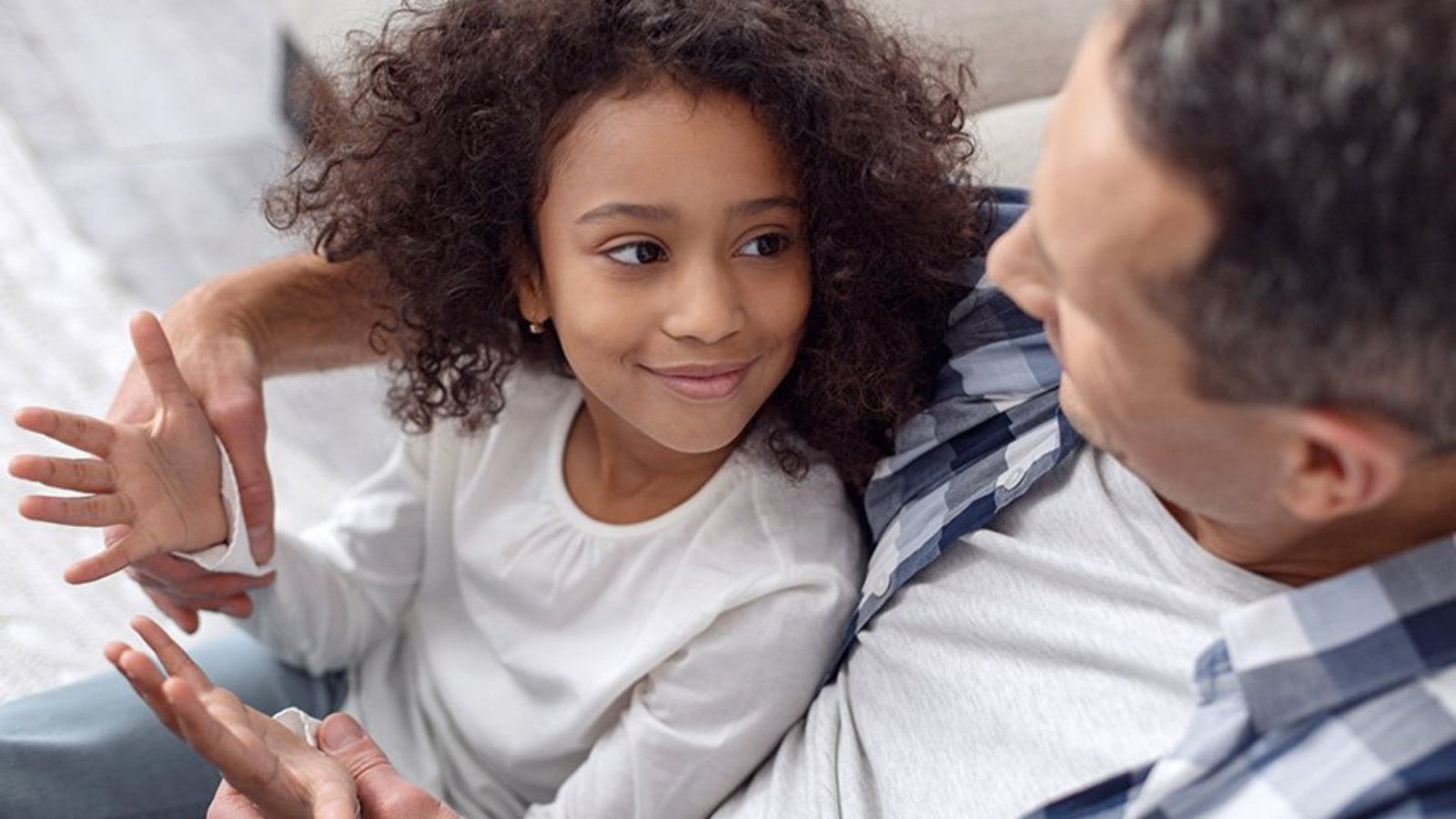Good parenting is often reflected in the behavior, emotions, and development of children. While there is no single “perfect” way to parent, certain signs can indicate that parents are providing a positive and supportive environment. These signs show that the child is thriving in areas such as emotional health, social skills, and self-discipline. In this article, we’ll explore the key signs of good parenting that can be seen in children’s behavior and development.

Healthy Emotional Development
One of the most important signs of good parenting in children is healthy emotional development. Children who grow up in a supportive environment tend to express their feelings in a balanced way. They can identify and talk about their emotions, and they know how to cope with frustration, sadness, and anger in healthy ways.
For example, a child who feels safe enough to express their emotions and ask for help when needed shows emotional maturity. They might say things like, “I’m feeling sad because I lost my toy,” or “I’m frustrated because I can’t finish my homework.” This ability to communicate emotions is a clear sign that the child is receiving emotional support and understanding from their parents.
Self-Confidence and Independence
Children raised by good parents tend to develop self-confidence and independence. These children believe in their abilities and are more willing to try new things, whether it’s learning a new skill, making new friends, or tackling a difficult challenge. They have the confidence to face challenges without fear of failure.
For example, a child who is willing to speak in front of the class, try out for a sports team, or solve a problem independently shows that their parents have fostered a sense of self-assurance. They are comfortable taking risks and learning from mistakes, which are essential components of personal growth.
Respect for Others
A key sign of good parenting is that children show respect for others. Children who are raised with clear boundaries and positive guidance learn how to interact kindly and respectfully with peers, adults, and authority figures. They understand the importance of empathy and how to treat others with kindness and fairness.
For instance, a child who apologizes when they hurt someone’s feelings or shares toys with a sibling demonstrates respect and empathy. These behaviors indicate that parents have instilled values like kindness, fairness, and consideration for others, which are essential for healthy relationships.
Good Communication Skills
Children with good communication skills are often a sign of effective parenting. When parents take the time to listen, guide, and encourage open discussions, children learn how to communicate effectively. This includes expressing their needs, asking questions, and resolving conflicts in a calm and constructive manner.
For example, a child who can express what they need in a respectful way, like saying, “I need help with my homework,” or calmly explaining why they are upset, shows that their parents have taught them the importance of communication. These children feel comfortable talking to their parents and others about their thoughts and feelings, which fosters strong relationships.
Emotional Regulation and Self-Control
Good parenting also encourages emotional regulation and self-control in children. These children can manage their emotions, especially in stressful or frustrating situations. They are less likely to have emotional outbursts or tantrums and can regulate their reactions in challenging circumstances.
For instance, if a child gets upset but is able to calm themselves down or ask for help before reacting impulsively, it’s a sign that they are learning self-control. This ability to manage emotions and respond thoughtfully comes from a supportive and structured home environment where children feel secure and understood.
Responsibility and Accountability
Children raised by good parents often show a strong sense of responsibility and accountability. They take ownership of their actions and understand the importance of being accountable for their behavior. This includes completing chores, following through with promises, and admitting mistakes when they occur.
For example, a child who completes their homework on time, helps around the house, or admits when they’ve made a mistake is showing responsibility and maturity. Parents who set clear expectations and model responsible behavior help their children develop this important life skill.
Strong Social Skills
Children with strong social skills are another sign of good parenting. These children can navigate social situations with ease, whether it’s making friends, cooperating with others, or managing disagreements. They understand the importance of cooperation, sharing, and problem-solving in their interactions with others.
For example, a child who can take turns, engage in group activities, or resolve conflicts with peers calmly is demonstrating good social skills. These behaviors show that parents have provided guidance in developing healthy relationships and the ability to interact with others in a respectful and positive way.
Positive Attitude Toward Learning
Good parenting often leads to a positive attitude toward learning and education. Children who are encouraged to ask questions, explore new ideas, and challenge themselves are more likely to develop a love of learning. These children tend to be curious, motivated, and eager to expand their knowledge.
For instance, a child who enjoys reading, asks questions about the world around them, or takes initiative in school projects is showing that they value learning. Parents who encourage curiosity and create an environment where education is prioritized foster this positive attitude toward learning.
Resilience and Problem-Solving Skills
Resilience and the ability to solve problems independently are strong indicators of good parenting. Children who are supported and guided by their parents are more likely to bounce back from setbacks and find solutions to challenges they face. They learn that failure is a part of the learning process and are encouraged to try again when things don’t go as planned.
For example, a child who doesn’t give up after struggling with a difficult task or who seeks out solutions when facing a problem is demonstrating resilience. Parents who encourage their children to solve problems independently while providing support along the way help them develop this important skill.
Conclusion
The signs of good parenting are reflected in many aspects of a child’s behavior and development. Healthy emotional development, self-confidence, good communication, respect for others, emotional regulation, and responsibility all show that children are receiving the love, guidance, and support they need to thrive. By fostering positive behaviors and creating a nurturing environment, parents can help their children grow into well-rounded, confident, and responsible individuals. These signs are not only an indication of effective parenting but also a reflection of the strong bond between parent and child.





